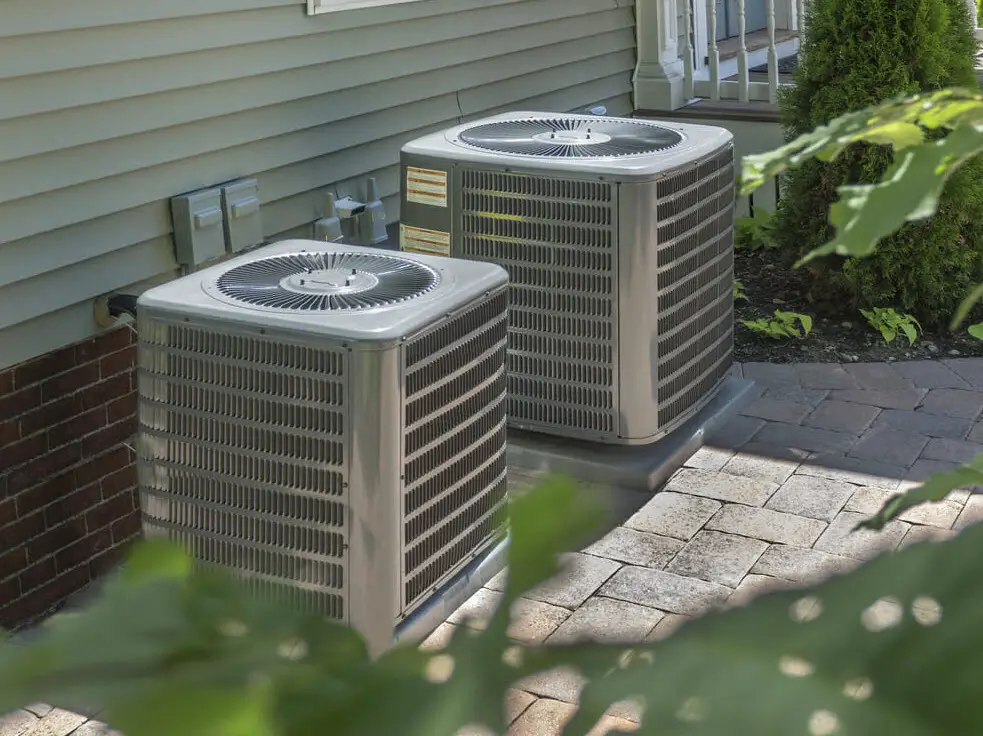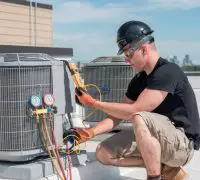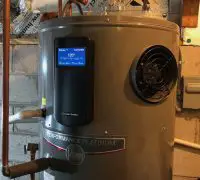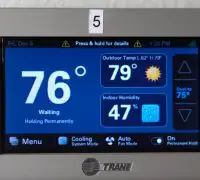Before you ever buy an HVAC system, you should first understand the size requirements. If you don’t, you could buy one too big, which will waste energy and money. On the other hand, buy one too small, and you won’t get enough cooling in the home. That is what you want to avoid. What steps can you take to make sure that you buy the right-sized system for the home? Let’s have a look at that question.
Page Table of Contents
Look at Square Footage
First, you will need to calculate the home’s square footage because this helps you decide on your HVAC system. In other words, look for the floor space in the home. That number might exist somewhere, but you could also measure the flooring space yourself. To begin, you will first need a tape measure. Take the length and width of the rooms. Then you multiple them to get the total of the room.
Once you have the length and the width of all the rooms, you will add them together to understand the home’s square footage. Every room and hallway must be measured to take an accurate picture of it.
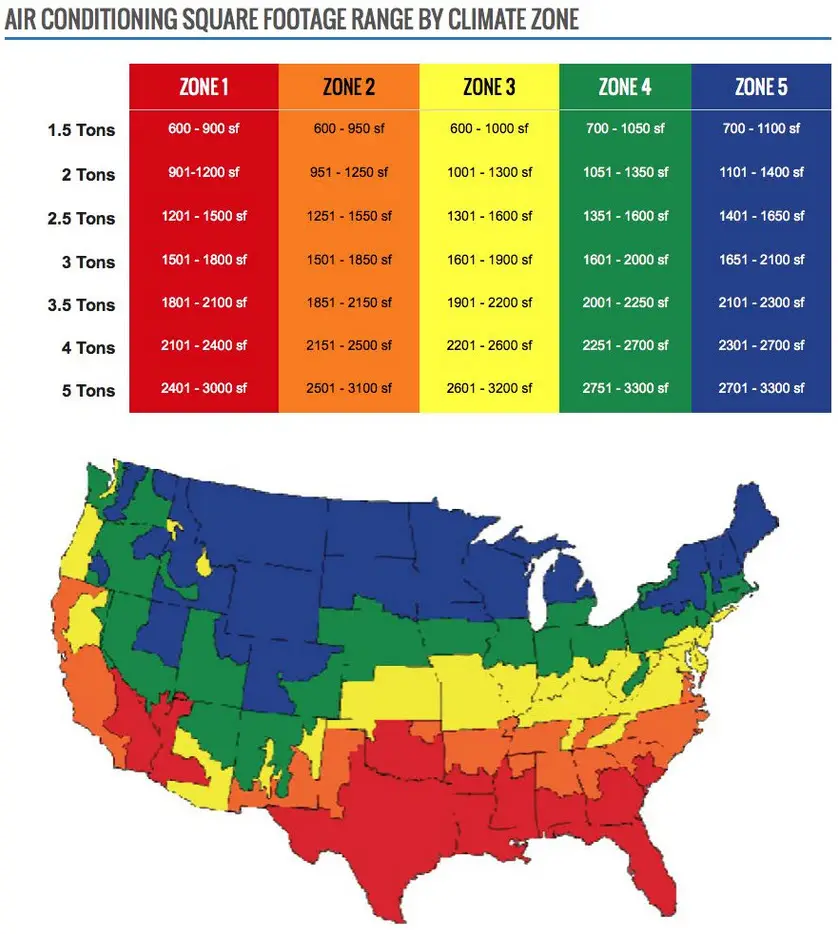 Once You Have the Square Footage
Once You Have the Square Footage
After you have the square footage, you shouldn’t consider yourself done because this doesn’t account for everything. You will also have to determine the base BTU. This acronym stands for British Thermal Unit, and experts define it as the heat required to raise the temperature with one pound of water by one degree in Fahrenheit. For each square foot, you can expect it to be around 25 BTUs. You take 25 multiplied by the number of feet in your home to get the BTUs. To give an example, in a 1,500-foot room, you will need 37,500 BTUs.
Finally, you will also have to account for the ceiling height. If you have a ceiling over 8 feet, you will multiply the BTUs by 1.25.
Do You Need to Do It on Your Own?
Most air conditioning companies will do an energy audit to make sure that you get it right. You can use them to determine the size of the HVAC system that you need. However, understanding the measurements on your own can help you to determine this yourself to ensure that you get the best deal.
What Else Can Impact the Size of the HVAC System?
Along with some of the other things that were previously mentioned, you will also look at a couple of other things that can impact the size of the air conditioner.
Some of the other factors that can have an impact include:
- Number of windows
- Placement of windows
- Insulation in the walls
- Placement of lighting
- Type of insulation
- Number of people in the home
Having an air conditioning professional for cases like this will prove invaluable because of how they can consider all the factors when helping you determine the size of your HVAC unit. By choosing the right size, you can make sure that your home receives an adequate heating and cooling rate throughout the year.
Deciding on the Unit
After you have determined the size, you will have to decide on the unit you want. Important to note, not every dealer will have the BTU units that you need for the home. What do you do if you run into this? In cases like this, where the dealer doesn’t have the required size, you will round up to the nearest BTUs. Go with the bigger BTUs but not too much bigger. This shouldn’t make a huge difference as long as you have a close representation. This ensures that your comfort needs will be met with the air conditioning unit that you chose.
In most cases, a little extra power won’t be bad because of how this ensures that you can handle your comfort needs. For cases where you buy a unit with too few BTUs, it can mean that your unit doesn’t quite measure up for those days when you need it to keep the home cool.
Too Large of Unit?
Here’s the problem if you get a unit that is far too large for your home. Your air conditioner will overkill on the home. It will cool the home at rapid speeds, but then it will shut off because it reached the desired temperature. The problem with this comes from how the frequent turning on and off is worse than if it had simply stayed on. This can lead to huge spikes on your energy bill.
As a general rule of thumb when determining the size of your air conditioner, it shouldn’t exceed above 15 percent of the BTUs for cooling, and for heating, it shouldn’t exceed over 40 percent of the BTUs. On heat pumps, you don’t want anything that goes above 25 percent.
Size Matters
The size unit that you choose will make a difference in your overall energy bill. You want it to match the right level of BTUs because this will mean that it runs most effectively, and you won’t wind up with as high energy costs. Running the air conditioning can wind up, costing you a lot of money otherwise.
Choosing the size of your HVAC system does matter, but if you ever have a doubt, it is advisable to hire a professional to take measurements. This ensures that you account for everything necessary to get the right amount for it. You shouldn’t simply drop in any heating and cooling system because of how you won’t get the most energy savings. Besides, if you choose too small a unit, it won’t do the job that it should be doing. You have to look at all the factors to make the best decision.
